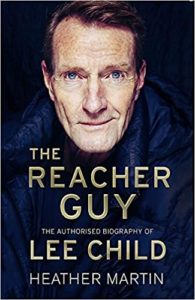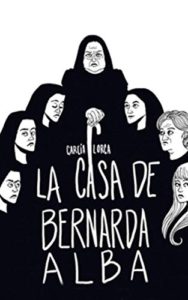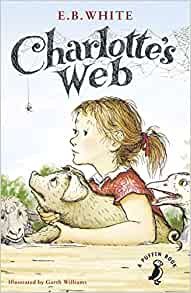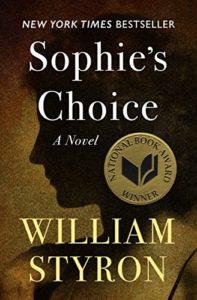Decades: Compiling the Ultimate Library with Heather Martin
If you were to fill a library from scratch which books would you put onto the shelves? That was the question which first crossed my mind one wintery day during the 2020 pandemic lockdown. I wouldn’t know where to start.
Well that’s not quite true as Terry Pratchett, Lee Child and Agatha Christie could command well over 15o books between them and they are just my first three picks. But after that I would simply go into a frenzy of dropping author names and a library of nothing but crime novels from Ed McBain to Val McDermid would emerge. Satisfying, but not really a true reflection of the Ultimate Library.
I decided I needed help. I would invite book lovers, authors, bloggers and publishers to help me pick the books which need to go into the Ultimate Library. I have two rules:
Rule 1 – Nominate Five Books which should be included in my Ultimate Library
Rule 2 – You can only select one title per decade and the decades must be consecutive so we get a 50 year publication span.
Today I am delighted to welcome Heather Martin to Grab This Book. As I haven’t given Heather the opportunity to talk about her own book, I asked if she could introduce herself and make sure she took the opportunity to plug The Reacher Guy.
 I’m an Australian long since settled in England, a willed displacement that I have in common with my biographical subject, Lee Child. Just as he wrote Killing Floor after a long first-act career in television, I wrote his authorised biography The Reacher Guy (out now from Constable at Little, Brown in hardback, ebook and audiobook, with Juliet Stevenson narrating), after many dedicated years as a student and teacher of languages and literature. But there’s one big difference: it’s unlikely my book will be the first in a twenty-four-book continuous bestselling series. The Reacher Guy is the intertwined history of three men: James Dover Grant CBE, and his two great fictional creations, Jack Reacher and Lee Child.
I’m an Australian long since settled in England, a willed displacement that I have in common with my biographical subject, Lee Child. Just as he wrote Killing Floor after a long first-act career in television, I wrote his authorised biography The Reacher Guy (out now from Constable at Little, Brown in hardback, ebook and audiobook, with Juliet Stevenson narrating), after many dedicated years as a student and teacher of languages and literature. But there’s one big difference: it’s unlikely my book will be the first in a twenty-four-book continuous bestselling series. The Reacher Guy is the intertwined history of three men: James Dover Grant CBE, and his two great fictional creations, Jack Reacher and Lee Child.
Thank you to Gordon at Grab This Book for inviting me to contribute to the Ultimate Library. Which seductive concept reminds me of one of Lee’s crazier pipe dreams: to build a bespoke library somewhere in the English countryside big enough to house all his books and still leave room for a full-size Bentley parked in the middle.
 So … It’s the kind of question that, once asked, you can’t put out of your mind. If you could only choose five books, one from each of five consecutive decades, what would they be? I knew immediately I was doomed to frustration. And much as I respect the literary discipline of working within constraints, somehow that imposition of historical continuity made it all the more difficult. In drawing up this list, I found I spent most of my time thinking of ways to cheat the system. How much could I get away with?
So … It’s the kind of question that, once asked, you can’t put out of your mind. If you could only choose five books, one from each of five consecutive decades, what would they be? I knew immediately I was doomed to frustration. And much as I respect the literary discipline of working within constraints, somehow that imposition of historical continuity made it all the more difficult. In drawing up this list, I found I spent most of my time thinking of ways to cheat the system. How much could I get away with?
I ruled out the present day: I’ve read too many books in the last year that I loved. Better to go further back, where there was more chance of having forgotten. Back before the nineties, which was when Lee wrote Killing Floor, which could only cause complications. But the eighties … How would I choose between Alice Walker and Toni Morrison, between The Color Purple and Beloved, to (sneakily) name just two?
I love all five of the following books, but a small part of me now hates them as well, because they pushed all the other ones out.
DECADES
1930s
Federico García Lorca 1898-1936
Three Tragedies: Blood Wedding, Yerma and The House of Bernarda Alba
I fell in love with Andalusia in my early teens, which was what led me to play the guitar, which was what brought me from Perth to London, and thence to Cambridge to study languages. In the early thirties, Lorca became director of La Barraca, a touring company whose mission was to bring theatre to rural audiences free of charge. Lorca defined theatre as ‘poetry that arises from the book and becomes human’. I love these plays for their lyricism and intensity, their boldness, their powerful portrayal of women. The cheat? A reading of the plays will surely lead on to his poetry.
1949
Simone de Beauvoir 1908-1986
The Second Sex
Philosopher Simone de Beauvoir was, in her day, the youngest woman ever to pass the fiercely competitive postgraduate ‘agrégation’ examination in France, coming second only to lifelong partner Jean-Paul Sartre. De Beauvoir was fearless, with all the courage of her convictions. And she wrote a big book exploring a very big idea: ‘One is not born a woman but becomes one.’ The Second Sex has extraordinary scope, reaching back to Aristotle and Aquinas and anticipating Germaine Greer and Margaret Atwood, and still holds its own today.
E. B. White 1899-1985
Charlotte’s Web
A favourite when I read it as a child, a favourite to read aloud to my own children, and no doubt still a favourite were I to reread it today. Everything about this deeply compassionate book is life-affirming and life-enhancing: the lightness of touch, the playful language, the enchanting line drawings, the humour, the cycle of love and loss. And every single character unforgettable. Cheat: It brings to mind my treasured collection of Puffin paperbacks, many of which I brought with me when I left home years ago.
1962
Jorge Luis Borges 1899-1986
Labyrinths
If I’d been allowed only one book, this would have been it. Not because I once met Borges, a few years before he died, and supplied him with a Japanese word he’d forgotten. But because every Borges story, like his aleph, contains ‘the inconceivable universe’. This anthology includes three of the best. ‘The Garden of Forking Paths’, a highly condensed thriller and detective story in which all possible outcomes of an event occur simultaneously, with each then leading to further proliferations of possibilities. ‘Funes the Memorious’, my go-to story on memory, whose nineteen-year-old antihero (who for some reason reminds me a bit of Lee) is ‘as monumental as bronze, more ancient than Egypt, older than the prophecies and the pyramids’, and whose poignant moral is ‘to think is to forget’. And ‘The Library of Babel’, ruled by divine disorder, in which is to be found – somewhere, no one knows quite where – the book of books, containing all other possible books. The biggest cheat of all.
William Styron 1925-2006
Sophie’s Choice
‘If you read only one book,’ Lee Child once said to me, ‘make it these three’, writing a dedication in a copy of Sophie’s Choice. So I did. And by the time I got to the end I knew exactly what those cryptic words meant. I read it in New York in 2019, while I was deep in writing The Reacher Guy (Lee had told me that the red house of Echo Burning was inspired by Styron’s pink house in Brooklyn). Not much got written that weekend. I didn’t go out. I didn’t eat much either. Not sure I got out of my pyjamas. No matter that the story of Stingo and Sophie and Nathan was more than six hundred pages long, I could barely put it down. And by the end I was heartbroken – in a good way.
Huge thanks to Heather for adding books six to ten to my Library. It’s taking shape! The first five books, selected by Sharon Bairden, can be found here: https://grabthisbook.net/?p=5056
I would like to add my personal recommendation to read or (as I am currently doing) listen to, The Reacher Guy: The Authorised Biography of Lee Child. It’s a terrific book and the audiobook narration by Juliet Stevenson is aural nectar. You can order a copy here: https://www.amazon.co.uk/gp/product/B086L3VD1T/ref=dbs_a_def_rwt_bibl_vppi_i0
Decades will return


